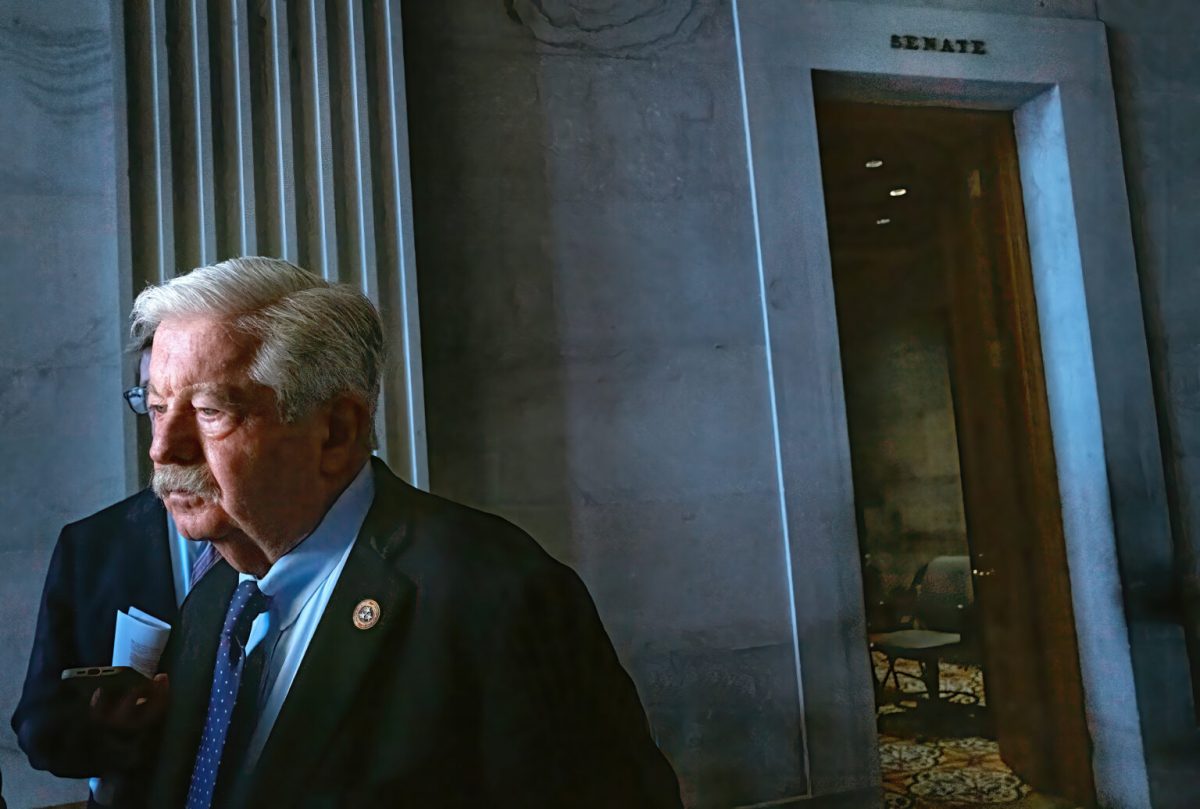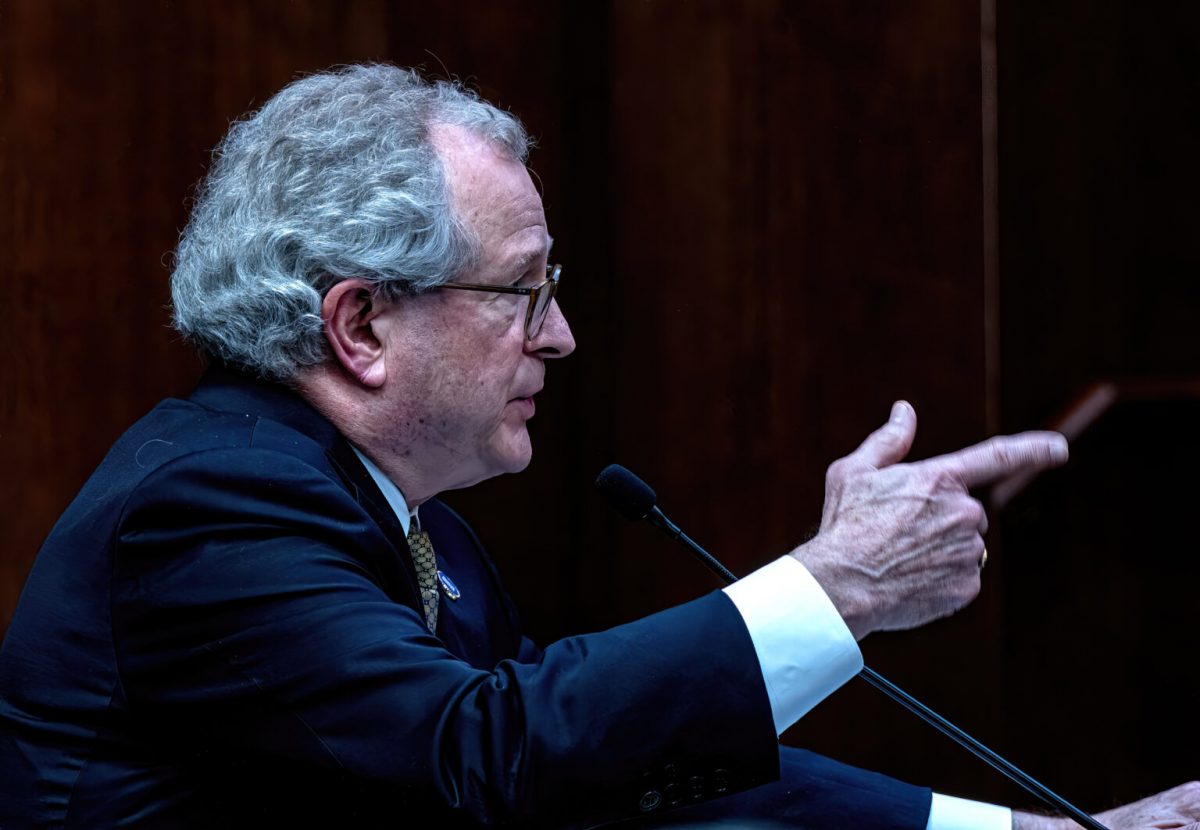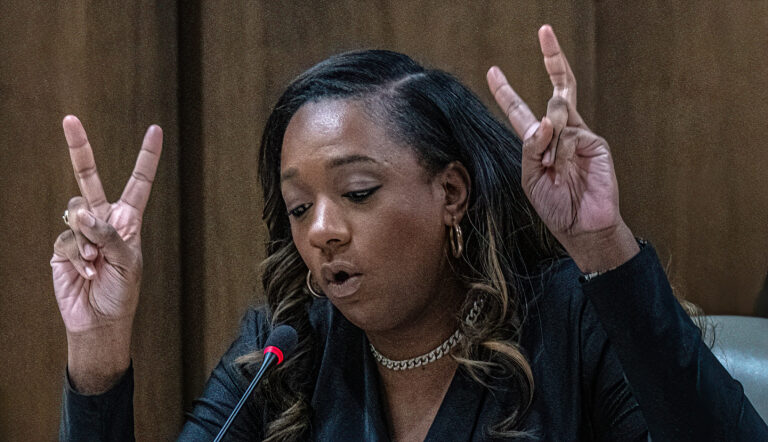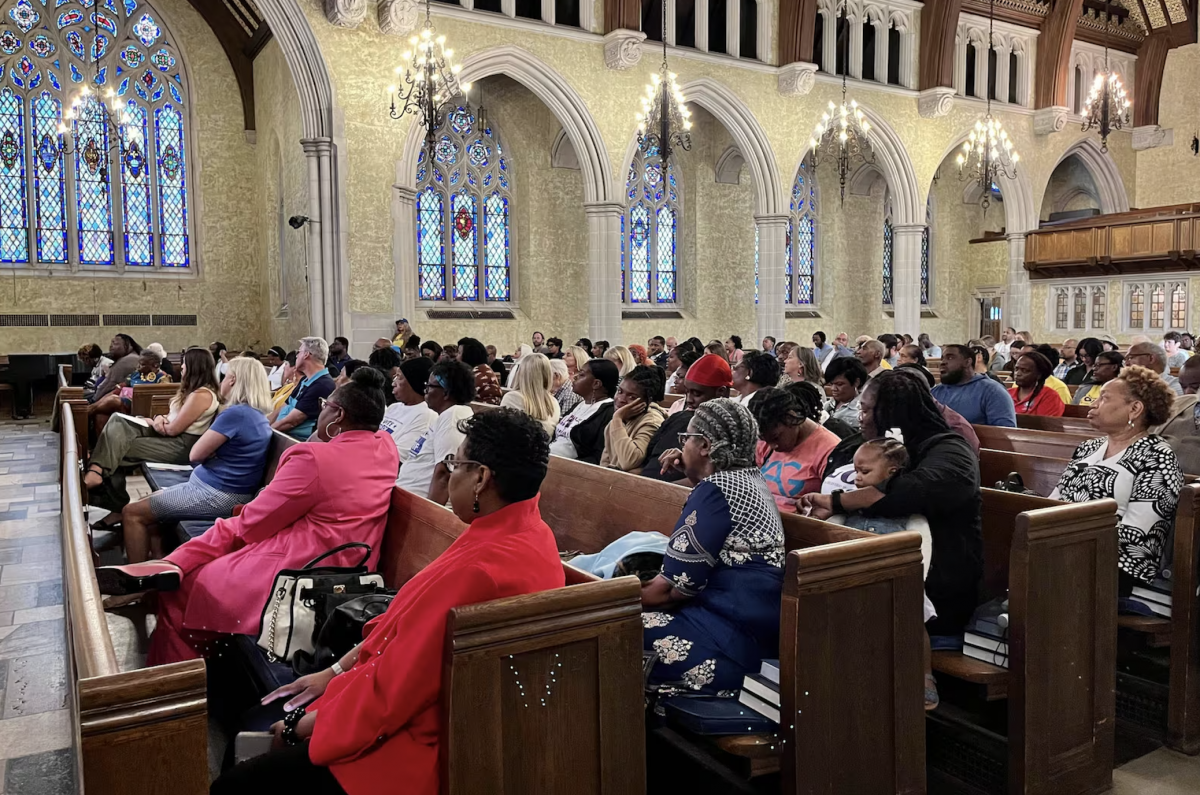Sign up for Chalkbeat Tennessee’s free newsletter to keep up with statewide education policy and Memphis-Shelby County Schools.
Marie Feagins was fired Tuesday as superintendent of Memphis-Shelby County Schools, setting the district back to where it has been repeatedly in recent years: searching for leadership.
A bitterly divided school board voted 6-3 to oust Feagins less than 10 months into her tenure, approving a resolution that cited allegations of professional misconduct and poor leadership.
Feagins, a former Detroit school administrator hired by a previous board to lead Tennessee’s largest school district after a prolonged and problem-plagued search, vehemently denied any wrongdoing. She described herself as a target of “false accusations and political maneuvering.”
Board chair Joyce Dorse Coleman introduced the resolution to fire Feagins and was joined in voting “yes” by members Stephanie Love, Natalie McKinney, Sable Otey, Towanna Murphy, and Keith Williams. Michelle McKissack, Tamarques Porter, and Amber Huett-Garcia voted no.
The board voted to name Roderick Richmond, a longtime district administrator now serving as the district’s transformation officer, as interim superintendent.
Feagins declined to answer questions from Chalkbeat as she departed the meeting, instead offering her congratulations to Richmond.
In a statement issued later Tuesday night through a public relations firm, Dorse Coleman said Feagins “has not demonstrated the transformational leadership that is critical to the success” of the Memphis district.
“At this pivotal moment, we need a transformational leader who will collaborate effectively with the Board and respect governance protocols, keeping students at the center of every decision,” she said.
The board will hold a news conference at noon Thursday at the district’s central office, the statement said.
After a tense and at times chaotic special meeting Tuesday night, the board approved a resolution Dorse Coleman first introduced Dec. 17 to fire Feagins. The resolution claims that Feagins:
- Failed to provide evidence of her statement that district employees were paid $1 million in overtime for time not worked.
- Accepted a donation of more than $45,000 without board approval, then misrepresented what happened.
- Misled the board and public about a federal grant and its missed deadline.
Feagins’ hiring was supposed to bring stability and rebuild trust after a turbulent 18-month superintendent search, and as the district navigated serious academic and financial challenges, including possible school closures. Instead, months of simmering tension between Feagins and the majority of board members led to a hasty divorce with potentially significant ramifications.
If the decision amounts to a firing for cause the board would avoid paying Feagins in severance — it was estimated at $487,500 as of last month — but potentially open itself up to other costs if Feagins pursues legal action. Feagins began work last April on a four-year contract that was to pay her $325,000 annually.
Lawmakers concerned about the prospect of Feagins being fired also were poised to take action.
State Rep. Mark White (R-Memphis), chairman of a House education committee, has floated reintroducing legislation he drafted last year that would give the state the power to appoint up to six new members to the nine-member Memphis board. White on Tuesday wrote a letter to the school board urging members to retain Feagins. Another lawmaker, state Rep. G.A. Hardaway (D-Memphis), has already filed a bill that would create a process for recalling school board members.
Huett-Garcia and community members who spoke during Tuesday’s public comment period raised the specter of greater state intervention to warn board members against voting to fire Feagins.
A long line of speakers come to Feagins’ defense
More than two-dozen speakers — including teachers, alumni, and community organizers — lined up during public comment to support Feagins and criticize the attempt to oust her.
Among them was state Rep. Justin Pearson (D-Memphis), who drew national attention in 2023 after Republicans expelled him from office over his participation in a disruption at the state capitol. Pearson, who was quickly reappointed and then reelected to office, called the process targeting Feagins unfair and urged the board to “slow down.”
Pearson used sharper language in an interview with Chalkbeat, calling the process “horrendous.”
“I got expelled in an unjust and unfair way,” he said. “I know what it looks like and that’s what’s happening now.”
The meeting grew heated when the board’s outside counsel, Robert Spence, said his review found the allegations against Feagins were true. McKissack interjected, accusing Spence of acting like he was in a courtroom giving “Perry Mason editorializing.” Dorse Coleman threatened to “clear the room” repeatedly as audience members booed and heckled.
When the room quieted, Spence said Feagins violated her contract and deviated from board policy, and that she exhibited a pattern of untruthful statements. The board then voted to release Spence’s lengthy report to the public, although it was not released immediately.
Before voting to terminate Feagins’ contract, the board rejected a counterproposal from board member Huett-Garcia to keep Feagins and attempt to repair her relationship with the board. Under that resolution, Feagins would have had to provide monthly updates to the board, and board members would have been required to complete board governance training.
Even the superintendent’s most vocal board supporters said Feagins bore some responsibility for the deterioration of her relationship with the board since she started.
Still, McKissack pleaded with her colleagues to listen to community members and adopt the counterproposal to retain Feagins, which she described as fair and balanced.
“We can hit the reset button on all of this,” she said. “We absolutely can do this together.”
It was clear last month that at least five board members were inclined to sever ties with Feagins. But Dorse Coleman hit pause, casting the deciding vote on a proposal to delay the discussion until this month to allow for more deliberation and a response from Feagins.
During a board committee meeting last week, Feagins shared a point-by-point response to the allegations against her. She said some school board members presented misleading and false information, calling the effort to fire her “politically motivated” and vowing not to resign.
Board member McKinney leveled additional allegations at the committee meeting, accusing Feagins of “a pattern of failed leadership” and citing graduation issues, inadequate staffing, and cutting student support systems.
That prompted McKissack to say some of her peers were “hell-bent” on dismissing Feagins, and Huett-Garcia said McKinney was “crossing the line of governance.”
When it came time to finally vote on the resolution to fire Feagins at Tuesday’s special meeting, the discussion was more procedural than emotional. The board members in favor of ousting her did not make speeches explaining their vote. The roll call was taken, and the votes were tallied.
“The resolution was adopted,” Dorse Coleman said. “Thank you.”
Superintendent drama has been running for more than two years
A different board took a markedly different approach in parting ways with Joris Ray, who resigned in August 2022 in the midst of a board-ordered outside investigation over claims that he abused his power and violated district policies. That board approved an agreement that gave Ray a severance package equivalent to 18 months’ salary — about $480,000. The agreement also ended the investigation into Ray before any findings were made public.
District administrator Toni Williams then took over as interim superintendent. She went back and forth on applying for the job on a permanent basis, and ultimately withdrew from consideration. The district restarted its national search in June 2023, after the board agreed on a fresh set of job qualifications and criteria. That eventually led to Feagins’ hiring.
Feagins lasted just 110 days in the role, or less than one-fifth as long as Williams served as interim superintendent.
Before coming to Memphis, Feagins was an official in the Detroit Public Schools Community District, which, by contrast, has experienced a long period of leadership stability under Superintendent Nikolai Vitti.
Vitti, who was hired in 2017 as the district emerged from state control, received a second contract extension in March that will keep him in the post until 2028 and make him one of the longest-serving leaders in district history. He said at the time that working with the board on a succession plan would be one of his top objectives.
One of Feagins’ harshest critics in recent weeks has been board member McKinney, who unseated then-board Chair Althea Greene as District 2’s representative in the August 2024 school board election after campaigning as an advocate of leadership change. She signaled in her campaign that she would emphasize communication and community involvement, telling Chalkbeat: “Family and community engagement must be meaningful, genuine, inclusive, and responsive to truly support our students.”
Memphians are “tired of watching their students graduate but not be prepared for postsecondary opportunities,” McKinney said on election night. “At some point we have to decide who will be responsible for this. If things haven’t worked under that leadership, it’s time to try something new.”
McKinney was one of four newly elected board members last year. But Feagins’ board opposition included a mix of veteran and new board members: Dorse Coleman, Williams, and Love joined with McKinney and two other newcomers, Murphy and Otey. The other newly elected board member, Porter in District 4, sided with Feagins, along with McKissack and Huett-Garcia.
As the meeting room emptied Tuesday night, Overton High School Spanish teacher Noah Nordstrom said he felt shocked, heartbroken, and betrayed by the vote to fire Feagins.
Nordstrom, 26, said he fears ripple effects in classrooms, with teachers returning to a feeling of low motivation that was prevalent before the superintendent position was filled.
“For the last year under Dr. Feagins there’s been this new hope, this new sense of motivation, like our district is going somewhere,” Nordstrom said. “And now it feels like we’re going back.”
Chalkbeat is a nonprofit news site covering educational change in public schools.














